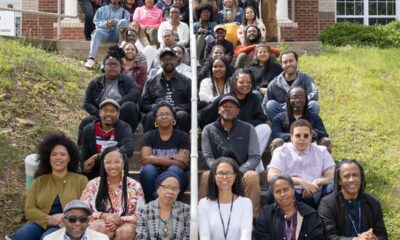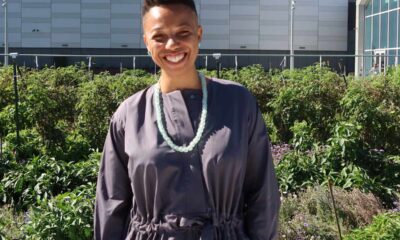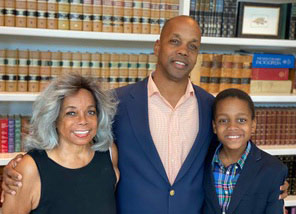National News
Pablo Guzman: Black Talk Radio Pioneer
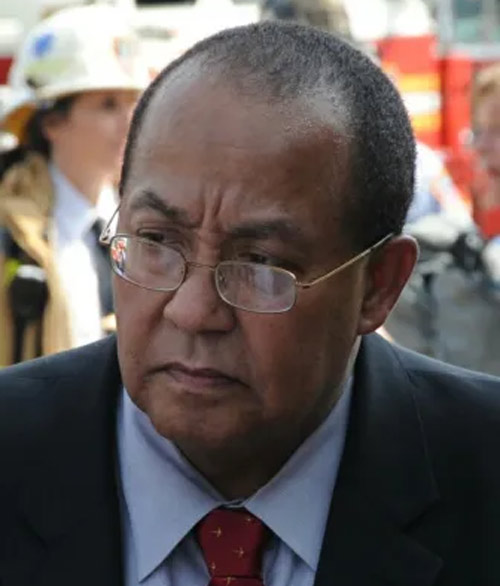
By Fern Gillespie
Before podcasts were making everybody and their third cousin a radio talk show host, Pablo Guzman pioneered commercial Black talk radio in New York City. Black public affairs talk shows have been on the radio for decades. However, in 1981, New York black radio executives saw the need to expand information to their audiences. In January 1981, I helped Vy Higginsen produce New York City’s first-morning drive talk-news-music magazine show on WWRL. Then a few months later, Percy Sutton, Chairman of Inner City Broadcasting’s WBLS and WLIB, changed the music format of WLIB radio to New York’s first Black news and information station. Program director David Lampell hired Judy Simmons, a well-known Essence editor and poet, and Pablo Guzman, a renowned political activist, journalist and broadcaster.
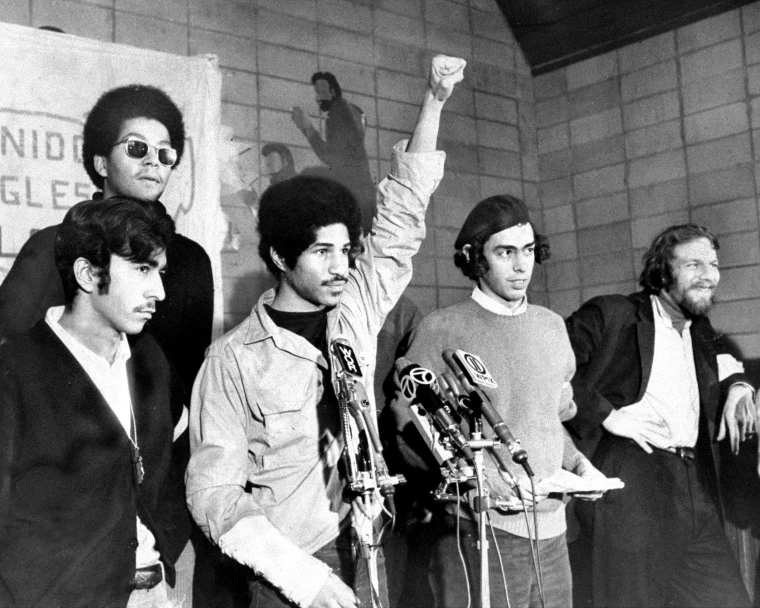
In 1982, I joined WLIB as a producer. It was Ronald Reagan’s first presidential term and his conservative movement was cutting back on Civil Rights. Pablo’s shows at the 801 Second Avenue studios, blocks from the UN, were packed with an eclectic list of politicians, musicians, community activists and educators focusing on Black and human rights issues. There were the historians Dr. Ben and Dr. John Henrik Clarke; attorneys Alton H. Maddox, C. Vernon Mason and Clarence Jones; community activists Al Vann, Sonny Carson, Rev. Herbert Daughtry, and Jitu Weusi were regulars on Pablo’s shows. Of course, there was Harlem’s Gang of Four—Percy Sutton, Basil Paterson, David Dinkins and Charles Rangel. Pablo, whose parents were from Cuba and Puerto Rico, was the legendary communications chief for the Young Lords. His spectrum of guests on WLIB were Latino icons like regulars Dr. Marta Vega, Fernando Ferrer, Tito Puente, Willie Colon, Felipe Luciano and Ruben Blades. Raul Julia, Antonio Lopez and even Celia Cruz dropped by. WLIB was at the forefront of the anti-apartheid movement in South Africa with the African National Congress, our upstairs neighbors. Al Sharpton learned his craft as a talk show host at WLIB and alternated as singer James Brown’s manager making Pablo’s show a priority.
At that time, Pablo was considered one of the top Black journalists covering music–penning features for Rolling Stone, Village Voice, Essence and NY Daily News. Funkster George Clinton broke “Atomic Dog” on Pablo’s show and callers phoned in barking! I remember talking on the phone with Ntozake Shange and looking up to see rock icon Frank Zappa staring at me saying “I’m supposed to be on Pablo’s Show.” A young Wynton Marsalis did his first NYC radio interview at
WLIB and became a Pablo regular. Regular guest Grammy winner James Mtume later got a talk show on KISS-FM. Reggae’s Jimmy Cliff tried smoking a joint in Pablo’s studio. Regular Cissy Houston talked about her talented daughter Whitney, who was going to sing for Clive Davis. Radio legend Frankie Crocker, in the next WBLS studio, would always check out Pablo’s guests to steal. This included Prince protégé Vanity, when Pablo broke her first song “Nasty Girl.”
Tyrone Williams, founder of Cold Chillin Records, started his NYC radio career as a WLIB studio engineer on Pablo’s show. “Pablo gave me my first shot in interviews for my rap artists. Pablo interviewed me, Mr. Magic and Marley Marl,” he said. “I got to learn a lot while watching Pablo. He was definitely a professional. Pablo showed me that opportunities are important. He was full of information. He was a teacher for me.”
In recent years, Pablo and I would reminisce about the outrageous, thrilling, fascinating years at WLIB. The era before he became a renowned TV news reporter at WCBS-TV, NBC-TV, Channel 5, and other stations. We spoke about how WLIB’s conversation radio had opened a new wave of Black talk and cross-cultural programming. He fondly spoke about how his wife Debbie had helped him to survive a stroke. He was frequently speaking out on social media. On LinkedIn, Pablo wrote that his ”WLIB show was so hot, even The Clash insisted on making a stop during their first NY tour. If you were running for mayor or making music or art beyond categories, this is where you went.”
Our Time Press reached out to Pablo’s friends Nelson George, Pat Prescott and Mark Riley for their thoughts and memories about his impact on Black radio and culture.
,
Nelson George, award-winning journalist, author and filmmaker, a Pablo regular, who promoted his Michael Jackson bio in 1983
Now , director of “Thriller 40,” a documentary about Michael Jackson’s landmark album, will premiere on Showtime and Paramount+ on Dec. 2
“To most New Yorkers, Pablo “Yoruba” Guzman was a news reporter on local TV. Some might know of his background in activism on streets of NYC. But, for me, Pablo was an excellent music critic, whose work I followed closely in the Village Voice and elsewhere. Definitely an influence on my decision to pursue music criticism as a young man. RIP Pablo.”
Pat Prescott, veteran radio personality, WLIB newscaster and co-host of Pablo’s WBLS morning show in 1984
Host of WBGO-FM’s “Favorite Things,” Monday-Friday from 12:00pm-2:00pm
“Pablo Guzman and I were friends long before we reconnected at WLIB and WBLS. As high school students we met as interns in an IBM summer program. It was a match made in heaven. Pablo was and is one of the smartest people I know and working with him was a joy. Getting up at the crack of dawn is tough but he made it easy by consistently being upbeat, cheerful, positive and most importantly, prepared. What made Pablo unique was his connection to and love for the community. It was all about “familia” for him, which is no surprise since he has dedicated his life to seeking justice and prosperity for the community from which he came. He was down to earth and completely natural, which came across in everything he did on air. He brought people together and made them think about the issues that affected all of our lives. With Pablo, to listen is to learn.”
Mark Riley, veteran radio news executive/talk show host, executive producer of WLIB talk shows
Podcast Host, Mark Riley: The Intersection of Politics and Culture
“WLIB gave voice to the voiceless. It’s hard to imagine Black people not having a voice now in the 21st century. Yet, the conventional wisdom in the largest city in America was that Black folks had no interest in politics or even the effect it had on our daily lives. Judy Simmons and Pablo Guzman changed all of that. Credit for the decision to start talk radio on the station must go to the late Percy Sutton. He saw what, even we didn’t always see. Pablo was one-of-a-kind, no matter the media with which he communicated. We spoke many times after he left WLIB. My most vivid memory of Pablo is how he used to greet callers. It created an air of warmth and familiarity no matter who he was talking to, regardless of whether that person agreed with him or not. It was simply “You’re on WLIB. Talk to me.” Rest in peace. My brother.”


